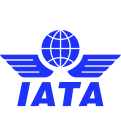The Architecture and Technology Strategy Board is responsible for interoperability and quality of Data Exchange Standards published under the authority of the Conference; and acts as an architecture and technology strategy advisor to other Standards Boards and to the Steering Group.
The Architecture and Technology Strategy Board manages the methodology for documenting business requirements, and developing and generating Data Exchange Standards. The Architecture and Technology Strategy Board also oversees the maintenance of the Airline Industry Data Model (AIDM); and maintains standards and best practices necessary for consistent and interoperable implementation of Data Exchange Standards and related technologies across multiple business areas supported by the Conference. The functions of the Architecture and Technology Strategy Board are detailed in Paragraph 5.2.
Groups under the ATS Board:
- Change Management & Airline Industry Data Model (AIDM) Integration Working Group
- Open API Working Group
- Identity Management Working Group
Change Management & AIDM Integration Working Group
- Oversees the maintenance of an integrated Airline Industry Data Model (AIDM) intended as a central repository to store business requirements, data and message models; and generate all data exchange specifications including messaging standards as well as developmental (alpha release) and candidate (beta release) messaging standards.
- Responsible for reviewing all proposals for integration of proposed changes into a new release of the AIDM.
- Liaises with other groups under any Conference, and Industry Committees as required.
- Maintains a work plan and report regularly to ATSB.
- Oversees the activities of former Methodology and Accessing PNRs Groups.
Participate:
To view and/or participate in the activities under the Change Management & AIDM Integration Group, please access the SSW site.
Membership of the Architecture and Technology Strategy Board (ATSB)
The following representatives have been elected to serve on the ATS Board for a two year period:
| Airline | NAME | TITLE |
|---|---|---|
| Air China | Mu Bo | Director of Loyaly and Corporate Account Management |
| Air France | Michele Walter | Enterprise Solution Architect |
| Air Transat | Bamba Sissoko | Chief Information Officer |
| American Airlines | Austin Lorenzo | Senior Principal Architect |
| British Airways | Stephen Bennett | Head of Business Capability |
| China Eastern | Zhou Tianmin | General Manager of Sales, Marketing and Passenger Service Product Dept of IT Solution |
| China Southern Airlines | Xu JiaWei | Vice Department Manager Information Technology |
| Delta Air Lines | Dave Weghorst | Business Consultant Technology Strategy |
| Emirates Airline | Najmi Mansoor Ahmed | Principal Solutions Architect |
| flydubai | Farnush Anwar | Manager Airport Systems and Automation |
| Hahn Air Lines | Vincente Zepeda Cabral | Solution Manager |
| Lufthansa Airlines | Carsten Breithaupt | Head of Group Architecture |
| Qatar Airways | Muhad Mohamed | Senior Manager Technology Engagement & Delivery |
| Shenzhen Airlines | Lin Ning | Security and Technology Manager, Information Management Department |
| Singapore Airlines | Lee Joon Hong | Senior Principal Technologist (Solution Architecture) |
| Turkish Airlines | Cigdem Yalcin | Enterprise Architect Open API |
| Virgin Atlantic | Caroline Barnsdall-Thompson | Head of Strategy and Architecture |
| Xiamen Airlines | Yao Li | Senior Architect |
| IATA Secretary | Jean-Christophe Cornu | Senior Manager, Technology Standards |
The Open API Working Group:
- Develops and agrees industry data communication standards based on open technology, including but not limited to REST API, GraphQL, AsyncAPI standards and best practices, with the focus to ensure consistency and interoperability in the implementation of Data Exchange Standards.
- Maintains Reference Communications Model (RCM), as a common point of reference for the implementation of communication protocols and the common non-functional requirements, including data exchange security, handling of personally identifiable data or similar standards and best practices.
- Liaise with other groups under any Conference, and Industry Committees as required.
- Maintains a work plan and report regularly to ATSB.
Standards:
The objective is to facilitate the creation of an industry API standard based on open technology, open industry-owned data definitions and process flows.
Please find the industry adopted REST API Standards and Best Practices in Open Air Standard.
Participate:
- Bring your expertise and help us develop the Open API standard by participating in the Open API Group under the Architecture and Technology Strategy Board (ATSB).
- If you are not the part of the IATA SSW environment, please register using this Guide (pdf), which describes the registration process step-by-step. Please note that membership is open to IATA Members and Strategic Partners.
Certification:
- IATA’s Open Air certification process validates the compliance of APIs against industry Best Practices. Certified APIs will be promoted in the IATA industry API Hub.
Apply for certification now!
Fill in the application form (pdf) and submit it to openair@iata.org.
LEVEL 0 Certification
- The API is documented using Open API Specification 3.0.
LEVEL 1 Certification
- All standards and best practices in Open Air Standard are fulfilled.
The Identity Management Working Group:
- Develops technical standards supporting coding regimes governed by IATA passenger standards, building on use cases referred to the group by the ATSB. Examples of use cases include, but are not limited to, the identification of sellers/travel agents in support of distribution standards, airlines/airports and service providers in case of operations standards, and passengers in support of distribution and passenger processing.
- Analyzes existing identity management technology standards to identify if any standards can be reused or extended to support airline industry use cases.
- Creates a detailed architecture of how the selected technical standard will be applied and implemented across the airline industry (including the creation of implementation guides and updates of the Reference Communication Model if necessary).
